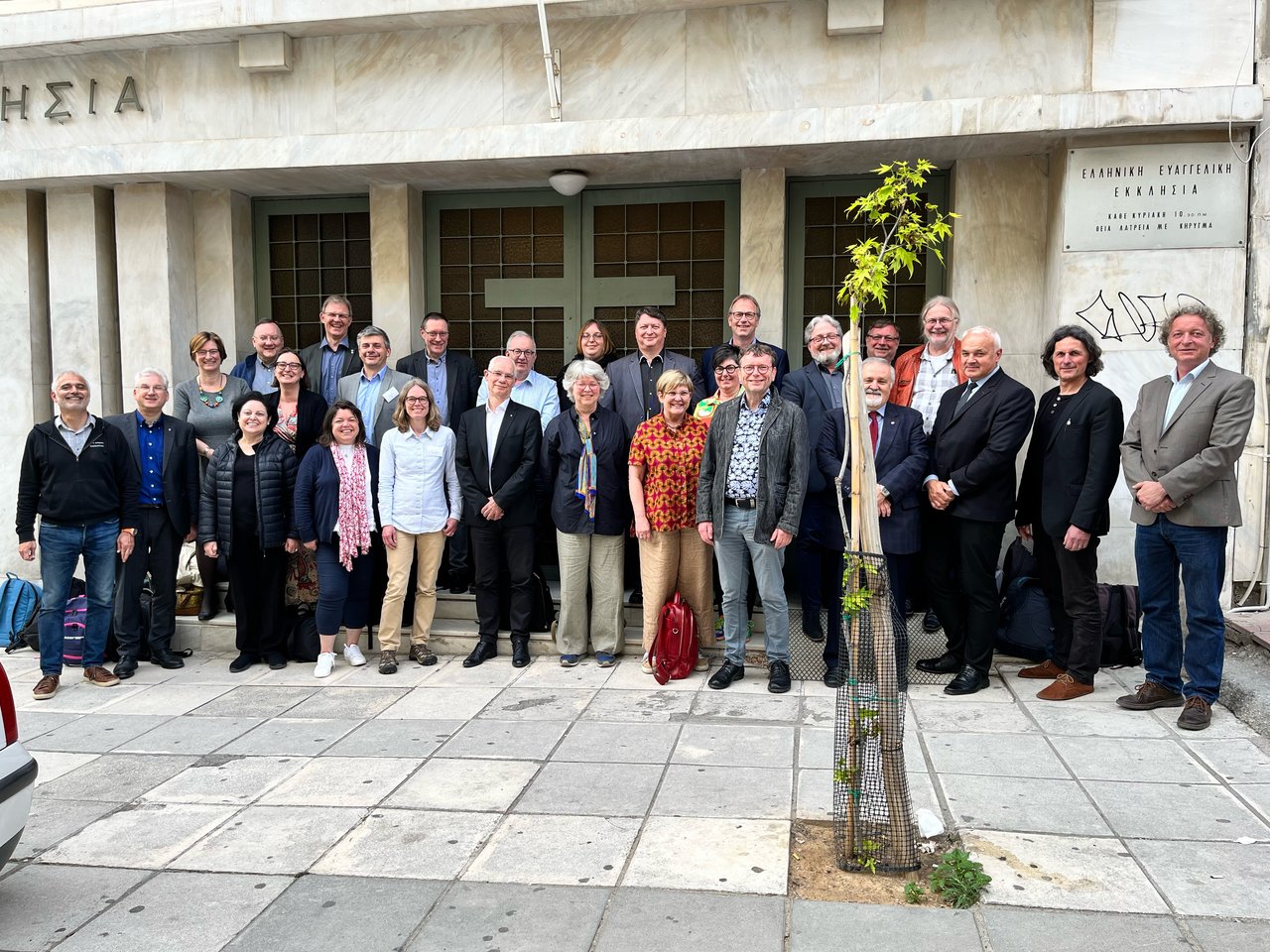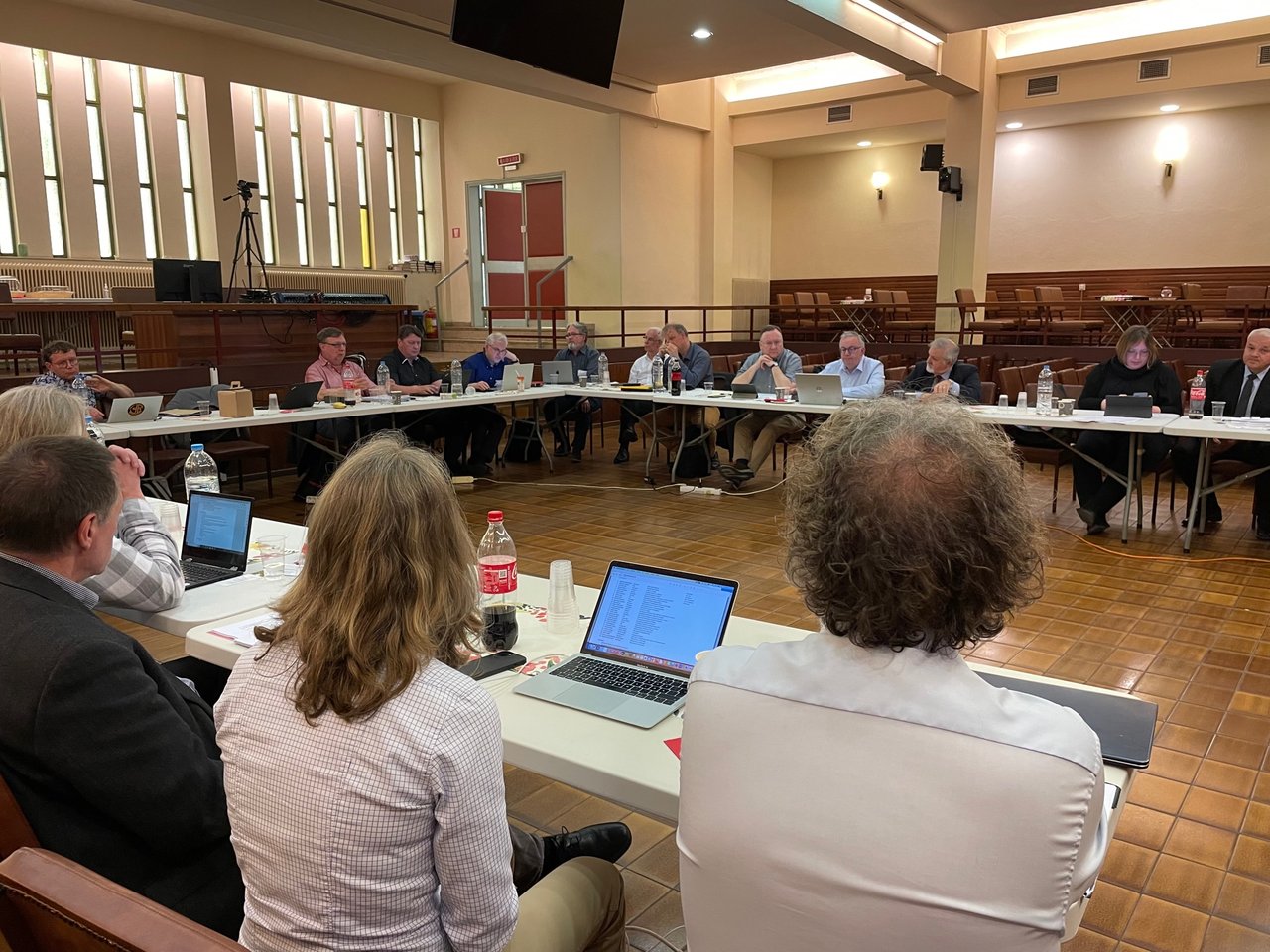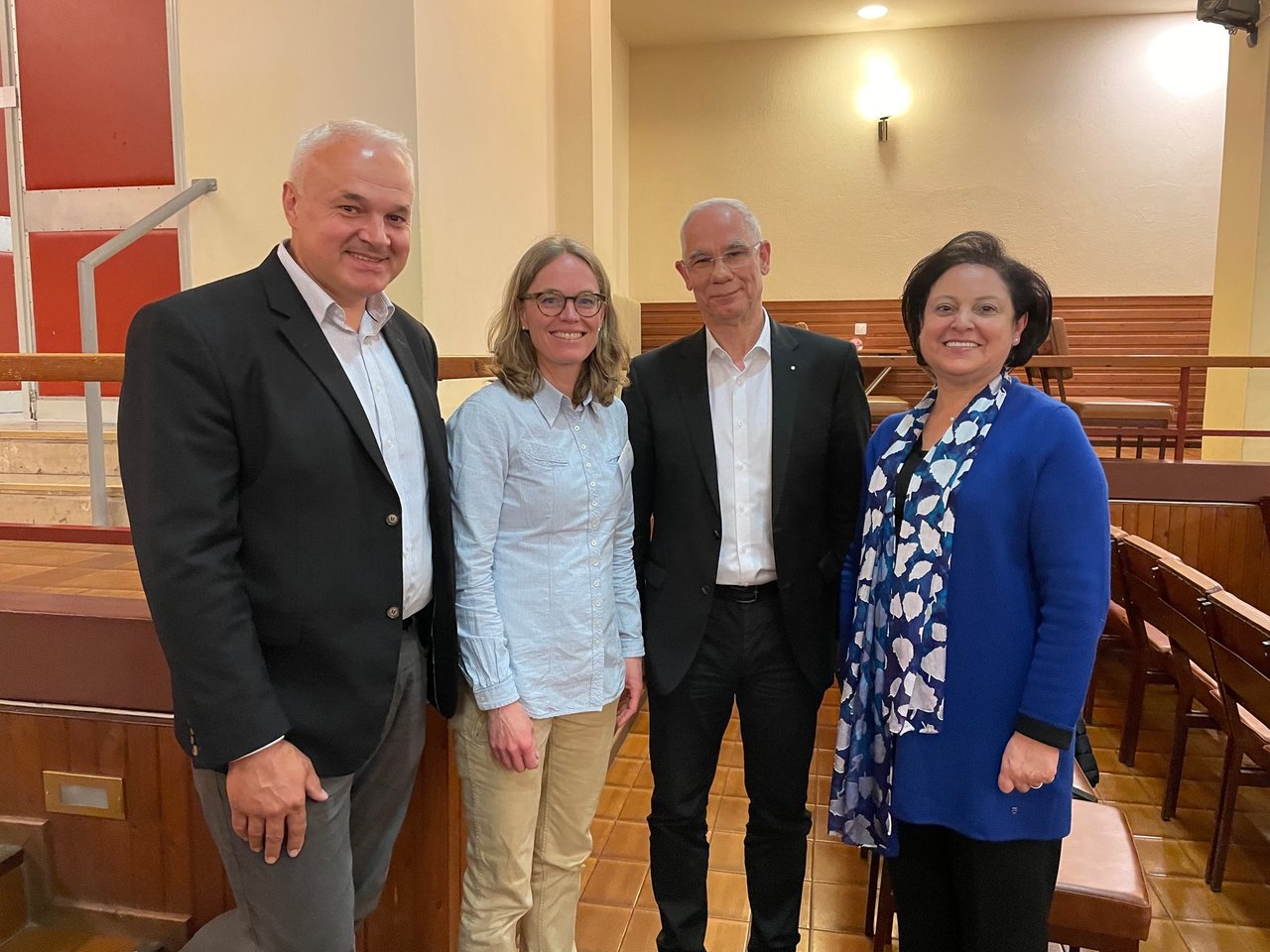On May 4-5, 2023, the Area Council of the World Communion of Reformed Churches in Europe (WCRC Europe) met in Thessaloniki, Greece, to discuss issues affecting member churches. Among those issues, Representatives of the European Reformed churches addressed responses to the humanitarian and political situation caused by the war in Ukraine and the document "From True Worship in the Church in the Distress of the Present."

The Hungarian Reformed community was represented by Bishop Zoltán Balog, Ministerial President of the Synod of the Reformed Church in Hungary, President of the General Convent, and Sándor Zán Fábián, Bishop of the Reformed Church in Trancarpathia, Ukraine, Attila Palcsó, Synod officer in charge of international relations of the Reformed Christian Church in Slovakia, Mária Beszédes, Pastor of Torontálvásárhely in Serbia and János Antal, officer in charge of international relations of the Királyhágómellék District of the Reformed Church in Romania. János Antal acts as secretary to the five-person leadership body of the WCRC Europe.
Strengthening the community in their faith
In her report, Martina Wasserloos-Strunk, President of the Area Council of the WCRC Europe, paid special attention to the war in Ukraine and the solidarity of the Reformed community within Transcarpathia. The Reformed Church in Transcarpathia, nestled within the westernmost region of Ukraine, has been a member of the WCRC for over 30 years. Bishop Balog emphasized that the aggression against Ukraine encouraged the European churches to show unprecedented solidarity. This unity manifested in the visits of our fellow churches and partner organizations to Transcarpathia, the response to the humanitarian crisis, our service in accepting refugees, and the direct support for the local Reformed Church. The President of the General Convent expressed his thanks for the cooperation, highlighting the strength of community commitment between the churches of Europe, even if they have different positions on specific issues.
Transcarpathian Bishop Sándor Zán Fábián personally expressed his gratitude for the solidarity of all fellow churches, which greatly helped the service of the Transcarpathian Reformed community and, through this, the war-torn country. These signs of brotherhood and togetherness strengthened the Transcarpathian community to remain in its place and bear witness to its faith and humanity. "The situation in Ukraine is a failure of humanity and diplomacy, as a result of which people were overcome by fear," said the bishop, who explained that a large number of refugees had arrived in Transcarpathia and pointed out that the Reformed people there had the opportunity to flee to Hungary, but many remained. However, according to Sándor Zán Fábián, the faith of the people helped to make the community there feel that God's grace remains with them, that they have there the living space they received, which must be preserved for the future, and that the community must be kept in its faith so that it can call on the name of the Lord and can listen to the gospel.

The seventy-three pastors who served there remained in their place, and they helped not only the Hungarians but also the refugees. Previously, the minority Hungarians had to defend themselves from assimilation, both cultural and linguistic, but now they have to cross these borders. Today, the pastors preach in Russian or Ukrainian in many of their churches, and the refugees have found safety; they can hear the gospel of hope. "Our hope goes beyond earthly existence, the resurrected Jesus directs attention towards eternal life," said the bishop. Reformed schools, kindergartens, and church members also accept refugees and true worship has been realized in providing help.
At the same time, Bishop Sándor Zán Fábián recalled that they live in a very disadvantaged situation since the Ukrainian state denies fundamental rights to the Hungarian national communities and other minorities. Meanwhile, they also have to take care of the elderly left behind. Therefore, based on the book of Job, 2023 became the Year of Hope in Transcarpathia precisely because of the many difficulties. "The tree also sprouts again, even if its trunk is cut down, even if the root dies, 'new life,' as the belief in the resurrection is also about this," the Transcarpathian bishop encouraged.

Bishop Sándor Zán Fábián Sándor, Jenny Dobers, WCRC Europe vice-president, Bishop Zoltán Balog and Najla Kassab, President of WCRC
"A new world order is clearly emerging, and many people think that maybe NATO, the United States, or China will be the peacemaker, but it must be seen that God is the peacemaker because God is the one who reconciled the world in Christ," said Sándor Zán Fábián.
Dreaming the church of the future through God
Najla Kassab, the Lebanese President of the World Communion of Reformed Churches, who herself visited Transcarpathia last year, thanked the European churches for their cooperation in helping Ukraine. "Every crisis should make us stronger and not discourage us," she said. Kassab states this is a critical time to come together and promote justice. "Our faith has a history of suffering: the cross of Christ reminds us of brokenness and misery, which is part of reality, but the broken parts can be reassembled in a renewed form by God's grace," explained Kassab. She believes that an example of such a remodeled and revived relationship is the fund-raising of the Transcarpathian Reformed people for the victims of the Syrian earthquake. "In the midst of suffering and hopelessness, the Spirit of God reshaped our relationship and refreshed our testimony, and through God, we can dream the church of the future in Europe and beyond," she said.
Regarding her mother church in Syria and Lebanon, President Kassab says the light at the end of the tunnel can already be seen in Syria; however, in neighboring Lebanon, the crisis is ever-increasing. Lebanon has two million refugees for every four million inhabitants, and many young people are leaving the country. At the same time, the church has become stronger in both countries than before the crisis and the war, especially in Syria. The sacrifice of the church members, especially the young adults who stay in the area, is impressive. "We are tired, but God is using us for good," said Najla Kassab.
True Worship
In the future, the theological dialogue between the decision-makers of Europe's churches is intended to be promoted by the seven propositions formulated about our common evangelical mission, "true worship," which were discussed by the conference participants.
"We are witnesses to dramatic changes in the world. We live in a time of irreversible upheaval and unbridled military aggression, in a time of irreversible human and cultural losses. Irreparable interventions in the order of nature, the ruthless exploitation of energy resources threaten the future of coexistence on our planet in the medium and long term. The erosion of almost all aspects of social life is no longer a marginal phenomenon, and the high level of social injustice and lack of solidarity, together with the aggravation of poverty and the increasing vulnerability of human existence, mean that an ever larger part of our contemporaries find themselves in precarious living conditions. The advance of authoritarian political regimes and the increasing erosion of democracies are creating space for political radicalization and ideological selfisolation, which offer a way out of the many crises. The breathtaking militarization of politics seems to be a mirror of the irreconcilable polarizations in social life. Self-assertion and confrontation are increasinglycrowding out deliberate positioning and an amicable reconciliation of interests," the document states, reminding us that the church is constantly changing, which it must always keep critically in mind.